The project is at an exciting stage now as we look to gather more material which will grow into a performance later this year. With a couple more sessions to go before Easter, after which we will meet every week until we break for summer, we turned our attention this week to the process of ‘foraging’, or gathering material through interviews and research.
To prepare for the session’s main activity, where we would consider the role of the senses in triggering and finding out about memories and experiences, we warmed up our eyes by focusing on things distant and close, we wrinkled our noses and smelt our skin, we explored the sounds within our bodies when we closed off our ears, we traced our finger tips over our wrists and clothes, and we rolled our tongues in mouths and discerned its edges, sensitising ourselves to the delicate differences in sight, touch, smell, sound and taste.
On five tables around the room lay invitations to explore each sense; the table for Taste held bowls of sweets and snacks, Hearing played waves crashing and a baby bawling, Sight displayed images such as those of a fire burning and electricity sparking, Smell offered the scent of disinfectant and ink and Touch invited our hands to explore an feathers and bark.
In groups of 3 we moved from table to table and contemplated the objects, images and sounds, sampling sweets and handling and smelling old books and scented candles. We did this as an individual exercise, to tune into our own associations and ideas, and then shared some thoughts in our group, before coming back to the big group.
It seemed that there were some commonalities – many people associated the colour yellow with the flying saucer sweets, and were transported to a library by the musty books or the nurses room by the disinfectant – and there were also detailed trains of thought and stories which were particular to individuals.
Smells took people to ‘Covent Garden, an unopened drawer, Nan’s spare room, Chip shop, Garden, kitchen, care home, doctors’, and someone travelled to Indonesia through the picture of rain on a window pane.
‘1p sweets bought from the shop on the walk home from Hummersknott’
‘movement of unsticking it from your teeth’
‘ the ding of the door to the sweetshop’
‘candle: old bathrooms. Toilet roll dolls’
The exercise was designed to explore our thinking about harnessing a more sensual approach to the subject, and how we might use the senses as a way of tapping into deeper and wider memories and experiences when interviewing. The further away from our memories of Primary school that we travel in time, perhaps the more they are encoded in places, smells, patterns and objects. We talked about how smell and memory are close together in the brain, which is why smell can be such a strong trigger for an emotion without our full comprehension as to where the smell came from.
Warmed up by this exercise, we experimented using ‘trigger objects’ – objects chosen specifically because their sensual quality might trigger a story or memory about Primary school. In pairs we used these objects –a piece of chalk (which a younger member of the group commented as being marvellous ‘because it was a whole piece, and whole pieces never survived long at school’), a marker pen, Dettol, show polish, ‘Refresher’ sweets and a pot of ink – as stimulus for questions.
My partner examined a tin of shoe polish and took in its strong turpentine smell. She talked about her memories of her primary shoes being polished, usually by her dad, how it marked a routine, and a conscientiousness around being ‘tidy’ at school. Using the link to school shoes, I asked her if she liked the shoes that she wore to primary school, and she replied that she didn’t dislike them but all the same she was never satisfied with them, they were never quite nice enough.
One person recounted how the ink reminded their partner of “ink pots and dirty fingers” and “a teacher criticising your handwriting because you were left-handed and because of stains. Messy business. You see, the class was not like today. The tables were in rows gazing at the blackboard.” For another, the ink pot marked a transition from primary to secondary school, having nice handwriting and a memory of sitting in a garden to write a story, which was read out in assembly. We considered whether some of these fragments would have been accessed without the physical stimuli, and how it felt to handle an object at the same time as being interviewed.
We moved on to consider a different object in our pairs and swapped roles; the interviewee became the interviewer. We were reminded that the project isn’t just about looking back, retrospectively, at our memories; it’s about imagination and opinion as well as experience. This time we were asked to create a story in response to the object, venturing questions to the other such as ‘where are you?’, and encouraging a story to slowly emerge.
These stories were presented back to the group as a freeze frame which was ‘switched on’ at a certain moment and the story teller narrated what was happening; children hiding eating sweets under their bed; pupils deciding between each other whose house they would go to after school; a wound being cleaned up in the nurse’s room. We wondered at the end how much of these stories came from our imagination and how much was related to or adapted from experience, and whether or not there is a difference.
